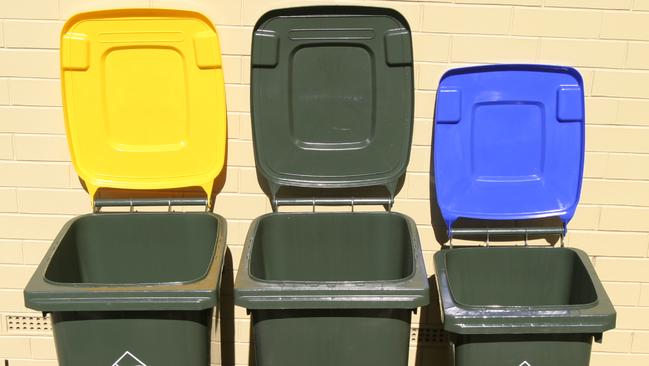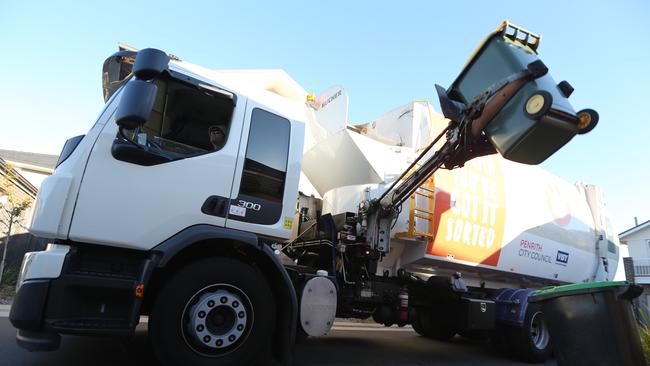Shock Chinese ban on imported paper and plastics likely to force council rate hikes across SA
RATEPAYERS across South Australia might be forced to pick up the multimillion-dollar bill of a shock increase in collection costs for recycled waste — all due to a new Chinese Government ban on imported paper and plastics.

Local
Don't miss out on the headlines from Local. Followed categories will be added to My News.
RATEPAYERS across South Australia might be forced to pick up the bill of a shock increase in collection costs for recycled waste.
All SA councils will have to consider an extra rate rise this year as they grapple with the consequences of a new Chinese Government ban on imported paper and plastics.
Rubbish collection agency East Waste expects the so-called China Sword to cost its seven-member councils — including Prospect, Walkerville, Burnside, Campbelltown, Mitcham, Adelaide Hills and Norwood, Payneham & St Peters — more than $2 million in 2018/19.
Prospect Mayor David O’Loughlin said that would create a $150,000-$200,000 hole in the council’s 2018/19 budget, which might have to be filled by an additional 1 per cent rate hike.
Prospect chief executive Cate Hart and East Waste general manager Rob Gregory last night briefed elected members about the import ban and their “limited” options to offset the financial hit.
Ms Hart said in normal circumstances Victorian-based company SKM Recycling paid the council to process its waste, which it would then ship to China.
But the new restrictions, which has caused the price of paper to plummet by as much 90 per cent, will now force SKM to charge councils a “gate fee” to take its recyclables.
Mr Gregory said the industry has been “caught off guard” by the “rapid movement” of the shock import ban, which has been phased in over the past few months.

China will still accept imported recyclables with a “contamination rate of 0.5 per cent”, but Mr Gregory said limits in technology meant that would be “physically impossible” to produce.
“We didn’t fully appreciate China’s involvement in the recycling market,” Mr Gregory said.
“They have been the most significant buyer in the past couple of years and they import up to 70 per cent of the world’s recycling commodity.
“So when they talk about this being an issue right across Australia, it is in fact right across the world.”
The New South Wales Government this month announced a $47 million relief package to help councils cope with the ban, while the Victorian Government has committed $13 million to help soften the blow to the sector.
Mr Gregory said the timing of the state election meant no such deal had been struck in South Australia.
“There has not been any announcements, in fact there has not been any discussions because of caretaker mode,” he said.
Local Government Association president Lorraine Rosenberg said the new import restrictions “had the potential to add millions of dollars to recycling costs in South Australia”.
Ms Rosenberg called on the new Liberal Government to dip into the state’s Green Waste Industry Fund to “shield ratepayers from the inevitable increase in recycling costs”.
“There is currently more than $100 million accumulated in the fund … (which) have accumulated due to exponential increases in the solid waste levy over a number of years,” Ms Rosenberg said.
Treasurer Rob Lucas did not answer question on whether the state government would offer a relief package to SA councils.
“We want to ensure we have effective kerbside recycling in SA and I am advised that the impact of the China ban won’t immediately result in recycling ceasing,” Mr Lucas said.
“In the meantime we are monitoring the situation and the longer term impacts of the ban more generally on SA’s overall recycling efforts.
“We will work with the local government sector to ensure they are delivering basic services such as recycling and rubbish collection as efficiently as possible and we would support councils cutting their own waste first before raising their rates.”


